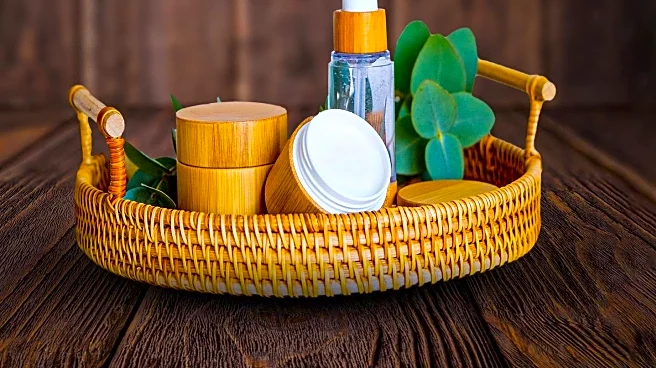What's Happening?
Kevin Cureton, CEO of Solésence, highlighted the evolving role of SPF in skin health at the WWD Los Angeles Beauty Forum. SPF products are increasingly seen as essential for overall skin health, beyond just preventing sunburn. Cureton emphasized the importance of educating consumers on the need for regular reapplication of SPF, particularly for those with deeper skin tones who may be at risk for skin cancer and melasma. The beauty industry is urged to develop products that cater to diverse skin types and promote consistent use.
Why It's Important?
The shift in SPF's role from sunburn prevention to a broader skin health tool reflects growing awareness of skin cancer risks across all skin tones. This evolution could drive changes in consumer behavior, encouraging more frequent use and reapplication of SPF products. The beauty industry stands to benefit by innovating products that meet these new consumer demands, potentially increasing market share and improving public health outcomes. Educating consumers on SPF's importance could reduce skin cancer rates and improve skin health across diverse populations.
What's Next?
The beauty industry may focus on developing SPF products that are easy to reapply and suitable for all skin tones. This could involve investing in new technologies and formulations that enhance user experience and effectiveness. Industry leaders might collaborate to improve consumer education on SPF usage, potentially influencing public health policies. As awareness grows, there could be increased demand for SPF products, prompting companies to expand their offerings and marketing strategies.
Beyond the Headlines
The emphasis on SPF reapplication highlights broader issues of accessibility and inclusivity in skincare. Developing products that cater to diverse skin types and tones could address long-standing disparities in skin health outcomes. This shift may also prompt discussions on ethical marketing practices and the role of the beauty industry in public health education. Long-term, these changes could lead to more inclusive beauty standards and improved health equity.











